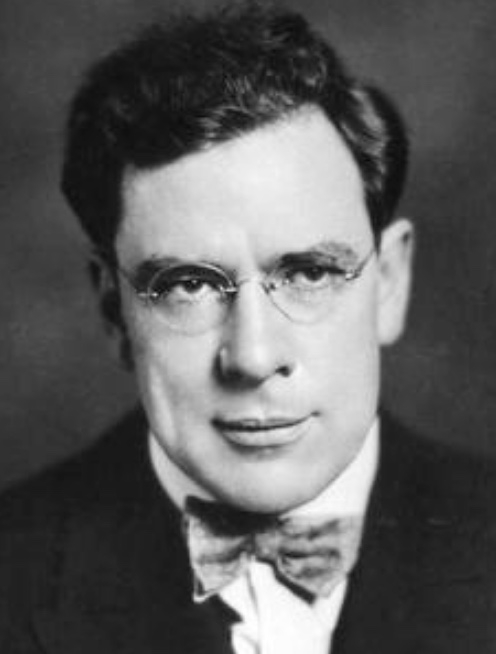On this date in 1888, dramatist James Maxwell Anderson was born in Atlantic, Pa., the second of eight offspring of Charlotte (née Stephenson) and William Anderson. The family moved often due to his father’s work as a Baptist minister.
A sickly child, Anderson read voraciously. After high school in Jamestown, N.D., he earned a B.A. in English literature from the University of North Dakota in 1911 and worked as a teacher and high school principal. Fired for making pacifist statements to students, he enrolled at Stanford University and received an M.A. in English lit in 1914.
He worked as a teacher and journalist for several years and was fired from several jobs for various reasons, including voicing outspoken views. He started a poetry magazine and wrote his first play, “White Desert,” in 1923, collaborating in 1924 with Laurence Stallings on the comedy-drama “What Price Glory?” It had a successful Broadway run and was adapted for the screen two years later.
Anderson’s long string of plays included the Tudor dramas “Elizabeth the Queen” (1930) and “Mary of Scotland” (1933), in which he inveighed against religious intolerance. “Winterset” (1935), inspired by the Sacco-Vanzetti case, won the 1935 New York Drama Critics’ Circle Award for Best Play. “High Tor” won the same award two years later. He was on the cover of Time magazine on Dec. 10, 1934.
He also had success as a lyricist and wrote the book for the 1938 Kurt Weill musical “Knickerbocker Holiday.” Its “September Song” became a jazz-pop standard. He wrote movie screenplays and several of his plays were adapted by Hollywood. Three versions of “Saturday’s Children” (1927) were made. “Anne of the Thousand Days” (1948) became a 1969 movie with Richard Burton and Geneviève Bujold as Henry VIII and Anne Boleyn.
His last successful Broadway play was 1954’s “The Bad Seed.” A contender for the 1955 Pulitzer Prize for Drama, it lost out to “Cat on a Hot Tin Roof.”
Anderson married high school classmate Margaret Haskett in 1911 in North Dakota. They had three sons, Quentin, Alan and Terence. His early 1930s’ affair with married actress Gertrude Higger led to a split with Haskett. Anderson and Higger had a long relationship but never married. She killed herself by inhaling car fumes in 1953. Their daughter Hesper was born in 1934. He married once more, to TV production assistant Gilda Hazard in 1954.
In a 1941 essay, he called the theater “a religious institution devoted entirely to the exaltation of the spirit of man. It has no formal religion. It is a church without creed, but there is no doubt in my mind that our theater, instead of being, as the evangelical ministers used to believe, the gateway to hell, is as much a worship as the theater of the Greeks, and has exactly the same meaning in our lives.”
Anderson died at home two days after suffering a stroke at age 70 in Stamford, Conn. (D. 1959)


